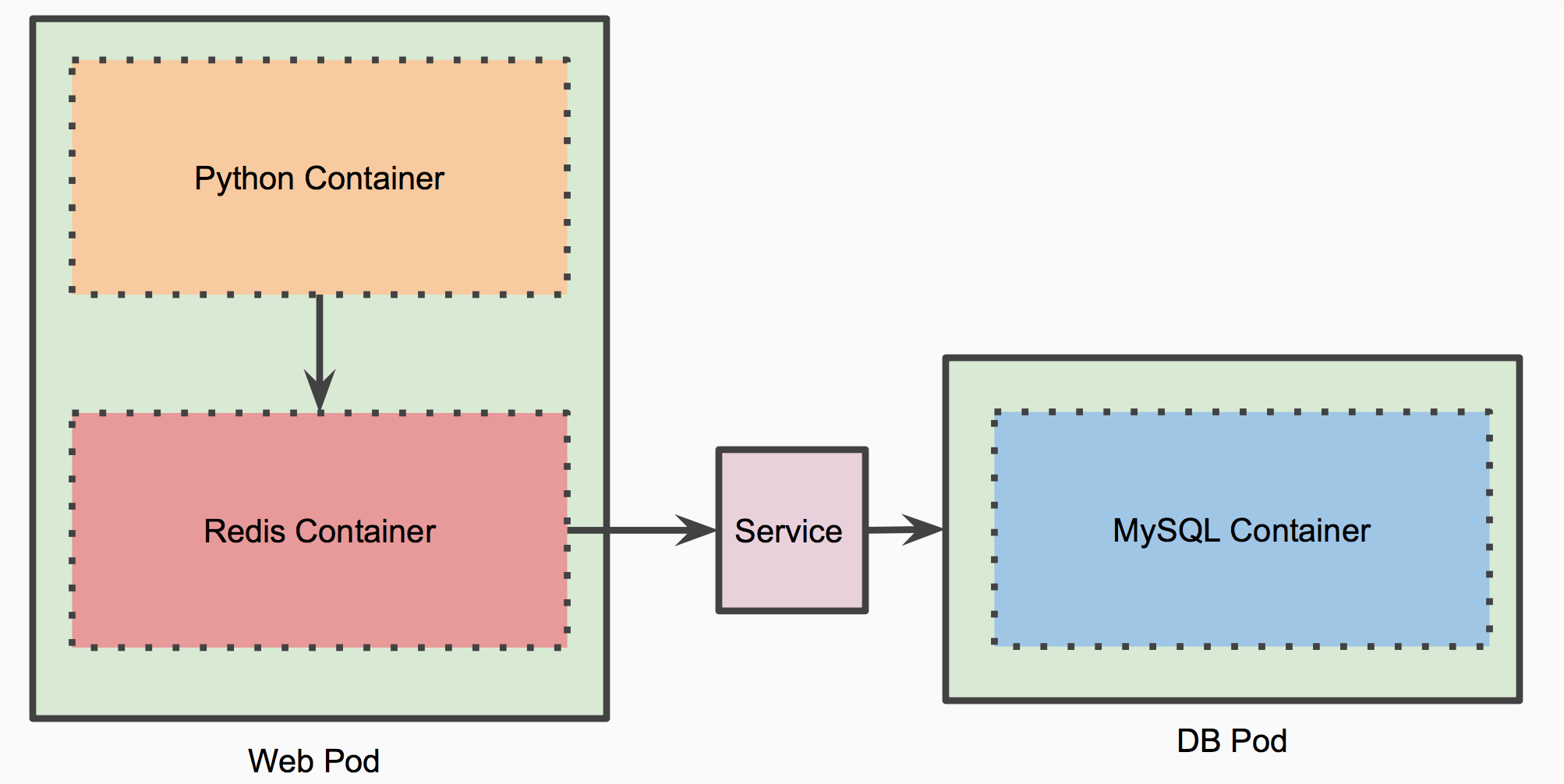Kubernetes pods
Kubernetes pods:
A pod is a collection of containers sharing a network and mount namespace and is the basic unit of deployment in Kubernetes. All containers in a pod are scheduled on the same node.
Multi-Container Pods in Kubernetes
Simple tutorial to demonstrate the concept of packaging multiple containers into a single pod.
- Web Pod has a Python Flask container and a Redis container
- DB Pod has a MySQL container
- When data is retrieved through the Python REST API, it first checks within Redis cache before accessing MySQL
- Each time data is fetched from MySQL, it gets cached in the Redis container of the same Pod as the Python Flask container
- When the additional Web Pods are launched manually or through a Replica Set, co-located pairs of Python Flask and Redis containers are scheduled together

clone this repo
https://github.com/sangam14/Multi-Container-Pods-in-Kubernetes.git
Make sure that you have access to a Kubernetes cluster.
Build a Docker image from existing Python source code and push it to Docker Hub. Replace DOCKER_HUB_USER with your Docker Hub username.
cd Build
docker build . -t <DOCKER_HUB_USER>/py-red-sql
docker push <DOCKER_HUB_USER>/py-red-sql
Deploy the app to Kubernetes
cd ../Deploy
kubectl create -f db-pod.yml
kubectl create -f db-svc.yml
kubectl create -f web-pod-1.yml
kubectl create -f web-svc.yml
Check that the Pods and Services are created
kubectl get pods
kubectl get svc
Get the IP address of one of the Nodes and the NodePort for the web Service. Populate the variables with the appropriate values
kubectl get nodes
kubectl describe svc web
kubectl get nodes
export NODE_IP=<NODE_IP>
export NODE_PORT=<NODE_PORT>
Initialize the database with sample schema
curl http://$NODE_IP:$NODE_PORT/init
Insert some sample data
curl -i -H "Content-Type: application/json" -X POST -d '{"uid": "1", "user":"John Doe"}' http://$NODE_IP:$NODE_PORT/users/add
curl -i -H "Content-Type: application/json" -X POST -d '{"uid": "2", "user":"Jane Doe"}' http://$NODE_IP:$NODE_PORT/users/add
curl -i -H "Content-Type: application/json" -X POST -d '{"uid": "3", "user":"Bill Collins"}' http://$NODE_IP:$NODE_PORT/users/add
curl -i -H "Content-Type: application/json" -X POST -d '{"uid": "4", "user":"Mike Taylor"}' http://$NODE_IP:$NODE_PORT/users/add
Access the data
curl http://$NODE_IP:$NODE_PORT/users/1
The second time you access the data, it appends ‘(c)’ indicating that it is pulled from the Redis cache
curl http://$NODE_IP:$NODE_PORT/users/1
Create 10 Replica Sets and check the data
kubectl create -f web-rc.yml
curl http://$NODE_IP:$NODE_PORT/users/1
